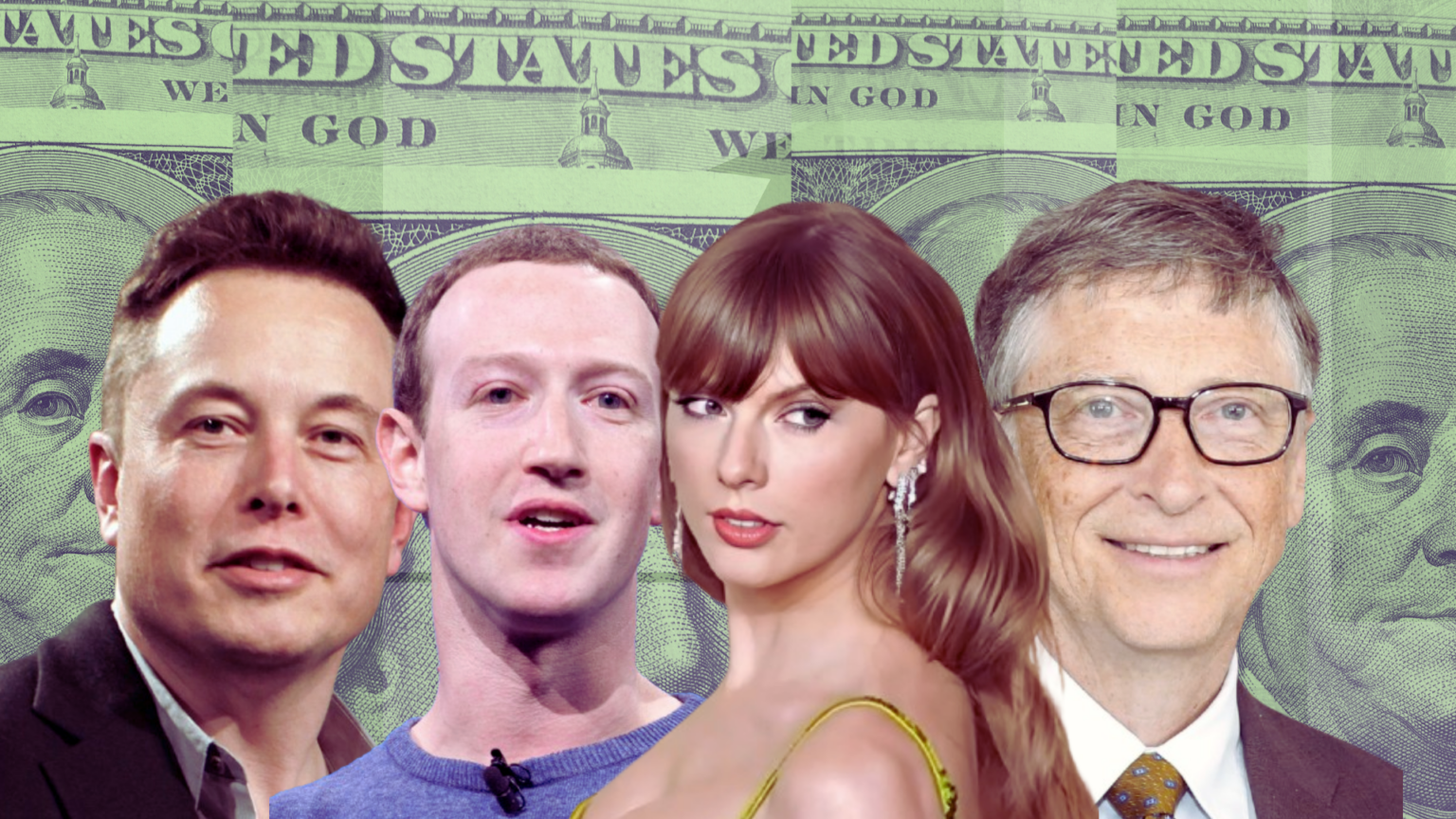An analysis of past and present Forbes annual American billionaire list reveals the ultra-rich have increased their wealth 88% over the last 4 years as the economy recovers from the shortages and challenges of a world pandemic.
Inequality.org shows that since 2020 the cumulative wealth held by American billionaires nearly doubled — from around $2.5 trillion to nearly $5.5 trillion.
Household Name American Billionaires
The study also tracked individual billionaires, including some of the most familiar names from the high net worth crowd.
Jeff Bezos, for example, had $113 billion in 2020. Today, Bezos is worth around $192 billion. By contrast, his ex-wife Mackenzie Scott reportedly shrunk her net worth by giving vast sums of money to charity.
Elon Musk has reportedly went from just under $25 billion to $255 billion in May 2022. However, recent declines in Tesla and X’s value brings him to approximately $188 billion to date. Still, Musk’s wealth is up over 700% in the last four years.
The Waltons, owners of WalMart, climbed from $161 billion to $229 billion.
Related: WalMart to Pay $45 Million for Systemically Overcharging Customers on Groceries
The study also looked at wealth accumulation by Google heads Larry Page and Sergey Brin, super-investor Warren Buffett, Microsoft pioneer Bill Gates, and others.
The number of billionaires also increased from 614 in 2020 to 737 in 2024. However, the rise in their cumulative wealth far outpaced the rise in billionaire headcount. Among the newly minted billionaires is pop star Taylor Swift, who reached the milestone sometimes in late 2023.
Compound Interest
Analysts provide some context for the wealth consolidation by billionaires over the last four years. They point out that some parts of American law and tax code help the wealthy build more wealth.
For example, there is the phenomenon of borrowing nearly 0% interest capital using their existing assets as collateral, capital that most people do not have access to. As their investments continue to grow, billionaires can borrow even more capital against them and accumulate even more investment assets, including stocks, bonds, and real estate. This “money glitch” is something Democratic presidential nominee Kamala Harris proposed unrealized gains tax takes aim at.
The rise in real estate prices also played a role in American billionaires’ burgeoning portfolios.
Another contributing factor is the historic pandemic response stimulus measures. Some companies were able to capitalize on these windfalls, regardless of actual profit or market share. Certain types of business benefitted more than others. For example, the consolidated e-commerce businesses grew exponentially. Amazon stands out as a prime example of centralization in this market.
A Global Divide
America wasn’t the only country to experience a sharp growth in wealth inequliaty since the pandemic.
A report by the World Economic Forum shows countries like China and Germany are also experiencing growing wealth disparities. Russia, France and India also have their own similar numbers.
Government agencies have started to look at these numbers to provide analytical feedback and insights on these trends which may guide government policy.
Sustained high interest rates continues to impact the economy as the job market slows. Without policy reform, the housing market and healthcare will be even bigger paint points for the remaining 99.999% worldwide.
Related: America’s Second Gilded Age: Wealth Inequality Deepens in the U.S.


